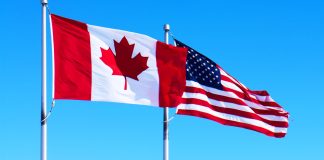The world’s poorest countries could save over $12 billion owed to sovereign and other creditors this year through their participation in a debt-relief programme, according to estimates published in a new database from the World Bank.
The savings under the COVID-19-linked Debt Service Suspension Initiative (DSSI) is a short-term initiative as it only provides for the suspension of debt payments through the end of the year until a later date but does not cancel them outright.
The World Bank’s Development Committee and the G20 Finance Ministers had in April endorsed the DSSI in response to a call by the World Bank and the International Monetary Fund (IMF) to grant debt-service suspension to the poorest countries to help them manage the severe impact of the COVID-19 pandemic.
The IMF also in April provided $500 million in grant-based debt service relief to 25 countries, excluding Nigeria, which is not covered under the joint Bank-Fund Debt Sustainability Framework for Low-Income Countries.
However, the Executive Board of the IMF approved Nigeria’s request for emergency financial assistance of $3.4 billion under the Rapid Financing Instrument (RFI) to meet the urgent balance of payment needs stemming from the outbreak of the COVID-19 pandemic.
The main goal of the DSSI is to allow poor countries to concentrate their resources on fighting the pandemic and safeguarding the lives and livelihoods of the most vulnerable people.
The IMF and the World Bank are supporting the implementation of the DSSI by monitoring spending, enhancing public debt transparency, and ensuring prudent borrowing.
A key objective of the DSSI is to enable an effective crisis response. Borrowers therefore commit to use freed-up resources to increase social, health, or economic spending in response to the crisis.
Beneficiaries also commit to disclose all public sector financial commitments (involving debt and debt-like instruments). Countries granted immediate debt service relief over an initial six-month period on their IMF obligations can now channel more financial resources towards vital COVID-19 emergency medical and other relief efforts.
According to the new World Bank data, under the DSSI, Angola alone could save some $3.4 billion of the estimated $12 billion, with Pakistan, the second-largest saver among eligible DSSI countries saving $2.4 billion, followed by Kenya with $802 million.
Besides each country’s estimated savings, the database includes details on debt owed to multilaterals like IMF as well as on official and non-official bilateral debt disbursed and debt service due per year.
IMF and World Bank officials have warned that the COVID-19 pandemic will hit developing and emerging markets particularly hard given high levels of debt, sharp drops in oil and other commodity prices and insufficient healthcare systems.
The DSSI is backed by the G-20, the World Bank, the IMF and the Paris Club of sovereign lenders.
The database provides a new level of transparency about debts and creditors, including China, which has become one of the largest creditors in Africa and elsewhere over the past two decades.
The Jubilee Debt campaign has estimated the cancellation of poor countries’ debt payments, including to private creditors, would free over $25 billion for the countries this year, or $50 billion if extended through 2021.
The United Nations, many African countries and civil society groups had called for the debt relief to be extended for two years to allow countries to recover more fully from the economic shock of the pandemic.
Source: THISDAY










